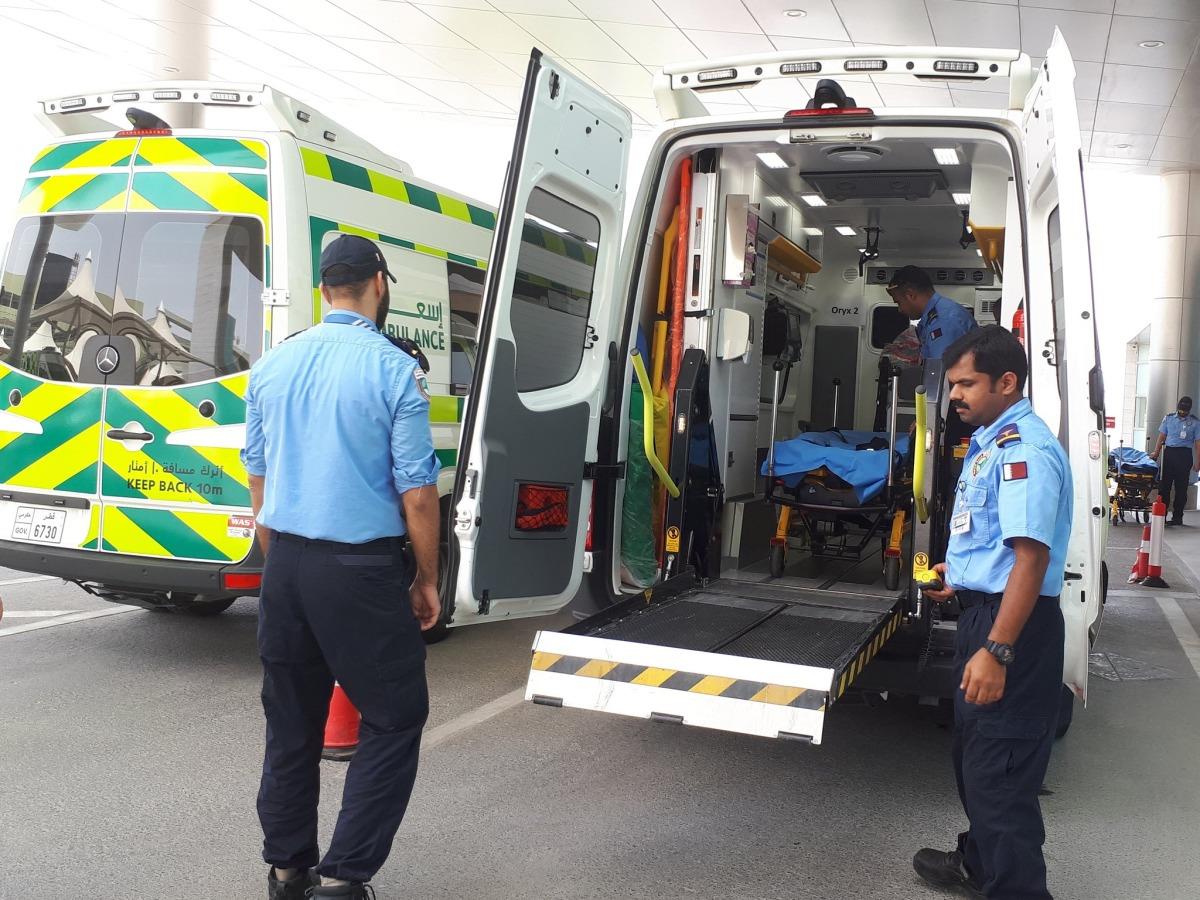
Paramedic Treatment Leads To Significant Improvement In Patients' Condition: Study
Doha, Qatar: A recent study has revealed that many patients choose not to be taken to the hospital after an emergency call because their condition improves significantly following treatment by paramedics on the scene.
Respondents to a study on patient well-being following the decision not to transport a patient to the hospital after an emergency call have reported improvements such as pain relief, stopped bleeding, stabilised vital signs, and overall symptom relief. They also expressed a high level of satisfaction with the services provided by Hamad Medical Corporation's Ambulance Service. The study, titled, 'Patient-Centric Perspectives on Non-Conveyance Decisions
Following Pre-Hospital Emergency Calls: A Qualitative Study', was published in the Journal of Emergency Medicine, Trauma, and Acute Care.”
Read Also-
Ministry of Public Health urges precaution against viral respiratory infections during winter
HMC renews warning against use of alternative tobacco products
HMC pioneers bone reconstruction and restoration procedures in Qatar to save two limbs from amputation
The Ambulance Service provides life-saving care to patients with critical conditions such as heart attack, stroke, seizure, choking, chest pain, unconsciousness, difficulty breathing, and severe allergic reaction. Approximately 1,200 calls are received by the Ambulance Service daily and ambulances are dispatched through 57 focal points. However, officials have said that an average of 20% calls received through the National Command Centre requesting for ambulance services are minor cases. As a result, a national campaign 'Where For Your Care?' aims to educate the public about the symptoms and conditions that require an ambulance as well as alternative treatment options for non-life-threatening cases.
In this backdrop, the study used a qualitative analysis approach, conducting telephone interviews with 210 patients who had requested pre-hospital emergency care from Hamad Medical Corporation's Ambulance Service between June 15 and August 1, 2023, but chose not to be transported to the hospital.
It has found details of five important topics - rationales for using 999 emergency services; reasons for declining hospital conveyance; subsequent steps after declining hospital transportation; service satisfaction level; and language barriers.
According to the study, pain-related issues - ranging from dental problems to headaches, abdominal pain, and musculoskeletal discomfort -often drive emergency calls.
Minor injuries, particularly from road traffic accidents, falls, and wounds, were also common. This finding is consistent with prior research, which shows most of these calls are low-acuity cases.
General health concerns such as fever, dizziness, and vomiting were less common but still notable. The data also revealed emergency calls for pregnancy complications and conditions like renal colic, which, though infrequent, have significant healthcare implications.
Mental health issues, including anxiety, convulsions, and dizziness, were also reported, reflecting the growing role of paramedics in mental health cases. Cardiovascular problems, such as hypertension and palpitations, were seen in a few cases. Breathing issues, like asthma and allergic reactions were also present, supporting previous studies, showing respiratory problems as common reasons for emergency calls.
After declining hospital conveyance most participants in the study, over 73%, chose not to seek further medical care and stayed at home after the initial treatment. A small number of patients (3%) decided to call 999 again after initially avoiding hospital care, indicating that their symptoms either didn't improve or got worse, requiring further attention.
Around 20.5% of participants chose other healthcare options, such as primary care centres or private clinics, using different transportation methods like private cars or ride-sharing services.
Regarding service satisfaction, the overwhelming majority (93.75%) expressed high satisfaction, with only minimal dissatisfaction (1.03%). While, language barriers were rarely encountered, as 90.63% of respondents reported no linguistic impediments, reflecting a generally smooth communication process during emergency service interactions.

Legal Disclaimer:
MENAFN provides the
information “as is” without warranty of any kind. We do not accept
any responsibility or liability for the accuracy, content, images,
videos, licenses, completeness, legality, or reliability of the information
contained in this article. If you have any complaints or copyright
issues related to this article, kindly contact the provider above.


















Comments
No comment